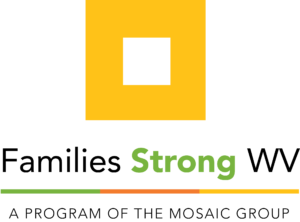Using terms like “addict” and “drug abuser” can unfairly stigmatize those with substance use disorder.
There are many ways we can support those using substances. One of the most important is also one of the simplest: watching our words.
When talking with or about an individual with a substance use issue, we need to be careful with the words we use to describe them. Those who use substances are too often referred to as “addicts” or “drug abusers” or, worse yet, “drunks,” “junkies,” or other derogatory terms.
These negative descriptors can be hurtful. And they also underscore a major problem when it comes to helping them—the stigma and stereotypes associated with substance use.
The importance of using the right terminology
Substance use disorder is a disease and when we use negative terms to describe those struggling with it, we reinforce the mistaken belief that the individual is in control of the disorder and its negative effects.
What’s more, when an individual who uses substances is described negatively, it can minimize both their humanity and the empathy they need for their situation. After all, people are complex and can be described in multiple ways.
For example, an individual can have substance use disorder and, at the same time, be a loving spouse and parent, an employee, a business owner, a kind and intelligent person, a caring neighbor, a valued member of their community, and more.
A negative term can unfairly redirect the focus onto the individual and away from the real problem—the substance use disorder. A negative term also assigns blame to the individual for the disorder. And that can be both inaccurate and counterproductive when supporting a loved one or assisting them with getting the help they need for recovery.
What are less-harmful words to use?
When it comes to substance use, our words are powerful. A loved one who uses drugs or alcohol will hear what we say and determine, regardless of our intentions, whether we are in their corner.
Our words come through loud and clear. It’s why we need to speak the language of support, not judgment.
On its website, the National Institute on Drug Abuse offers appropriate terms to use when talking about addiction, as well as the rationale for their use. Among the substitutions they offer:
- Instead of referring to an individual as an addict, refer to them as a person with substance use disorder.
- Instead of saying an individual abuses drugs or alcohol, say that they use drugs or alcohol (an individual who uses drugs or alcohol may not have a substance use disorder).
- Instead of referring to an individual as a junkie, refer to them as a person in active use.
- Instead of referring to an individual as a drunk, refer to them as a person who misuses alcohol or a person who engages in unhealthy or hazardous alcohol use.
- Instead of referring to an individual as a former addict, refer to them as a person in recovery.
As the National Institute on Drug Abuse points out, for these substitutions the preferred terms are in person-first language. They also avoid assigning blame or eliciting negative associations, and show that the person “has a problem, rather than is the problem.”
Get the support you need
Supporting a loved one with substance use disorder requires you to get the help and support you need first.
Families Strong WV offers group sessions, based on our years of experience assisting the loved ones of substance users. Contact our team today at (681) 378-2086 or email info@groupmosaic.com. Families Strong WV offers 8-week-long group sessions to equip you with the tools and resources to support your loved one no matter how tough things get.
_____________________
Families Strong WV is a free, 8-week support group for the families and friends of individuals who are using substances. It is designed to help reduce the negative effects of substance use issues on West Virginia families. The program is developed and guided by Mosaic Group, nationally recognized experts in behavioral health, with financial support from the West Virginia Department of Human Services, Bureau for Behavioral Health.





